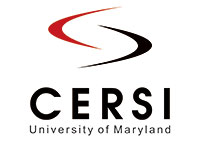Mark your calendars for Challenges and Strategies to Facilitate Formulation Development of Pediatric Drug Products, a symposium sponsored by the University of Maryland Center of Excellence in Regulatory Science and Innovation (M-CERSI).
Event Schedule |
|
|---|---|
| Date: | June 8-9, 2016 |
| Time: | 8:00 a.m. to 5:30 p.m. (Day 1) 8:00 a.m. to 4:30 p.m. (Day 2) |
| Location: | College Park Marriott Hotel and Conference Center 3501 University Blvd., East Hyattsville, MD 20783 Phone: (301) 985-7300 |
About the Event
Pediatric drug development has been stimulated by recent legislation, resulting in the submission of more than 500 pediatric studies to the FDA in the past decade. However, one important question is how to expedite pediatric drug development by developing easy-to-swallow and palatable formulations, which can mean the difference between treatment success and failure.
Compared to adults, children have different swallowing abilities, taste preferences, and dosage requirements. The pediatric population (0-17 years) as a whole is heterogeneous, with differing formulation requirements depending on the age and clinical state of the patient. Excipient safety has also recently been called into question for pediatric products. Certain common excipients in adult products may not be safe for the pediatric population, especially neonates. For instance, propylene glycol crosses the more permeable blood-brain barrier in infants and can cause neurological toxicity.
Foods and vehicles such as pudding or apple juice are commonly used to facilitate administration and improve compliance in the pediatric population. These household foods differ from food used in assessing food effect in adult subjects, and thus can impart different food effect on the bioavailability of the same medicine. The extrapolation of BCS data from adults to pediatric populations also remains an open question. There is unmet need to validate the BCS for pediatrics of all ages, including the development of a pediatric-specific BCS to facilitate a streamlined, algorithm-based approach to formulation development.
Lastly, there exists no consistent guidance on dosage form standards for pediatric age, on taste preference standards, or on acceptable excipients in pediatric formulations, which can lead to costly delays during pediatric drug development.
The overall aim of this workshop, scheduled for June 8-9, 2016 at the College Park Marriott Hotel and Conference Center, is to define risk-based strategies to support the development of pediatric age-appropriate drug products. Participants will review current status and gaps in strategic areas, as well as discuss regulatory convergence approaches to meet the requirements of all stakeholders (e.g., patients, regulators, practitioners, and industry). Workshop objectives include:
- To share current practices in developing pediatric drug products globally.
- To discuss development approaches for age-appropriate formulation and safety qualification of excipients in pediatric formulations.
- To identify harmonized strategies to generate appropriate data during pediatric formulation development.
- To provide a perspective on the development of pediatric medicines for a possible ICH E11 guideline on pediatric drug development.
About the Organizer
 |
A collaborative partnership between the University of Maryland, College Park and the University of Maryland, Baltimore, with support from the Food and Drug Administration (FDA), the University of Maryland Center of Excellence in Regulatory Science and Innovation (M-CERSI) focuses on modernizing and improving the ways drugs and medical devices are reviewed and evaluated. |
For More Information
More information about this conference, including registration, an agenda, and parking and accommodations, is available on this website.
